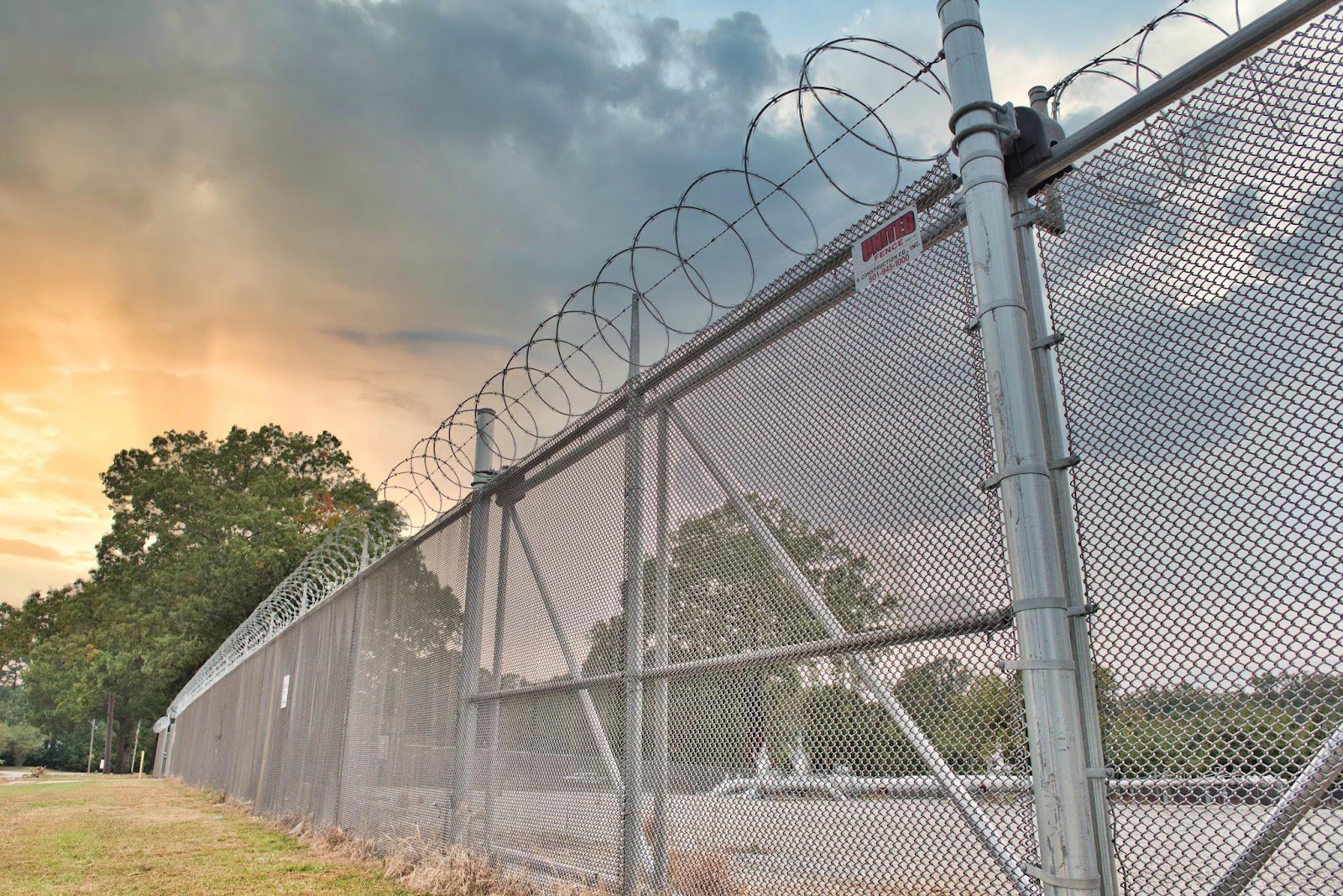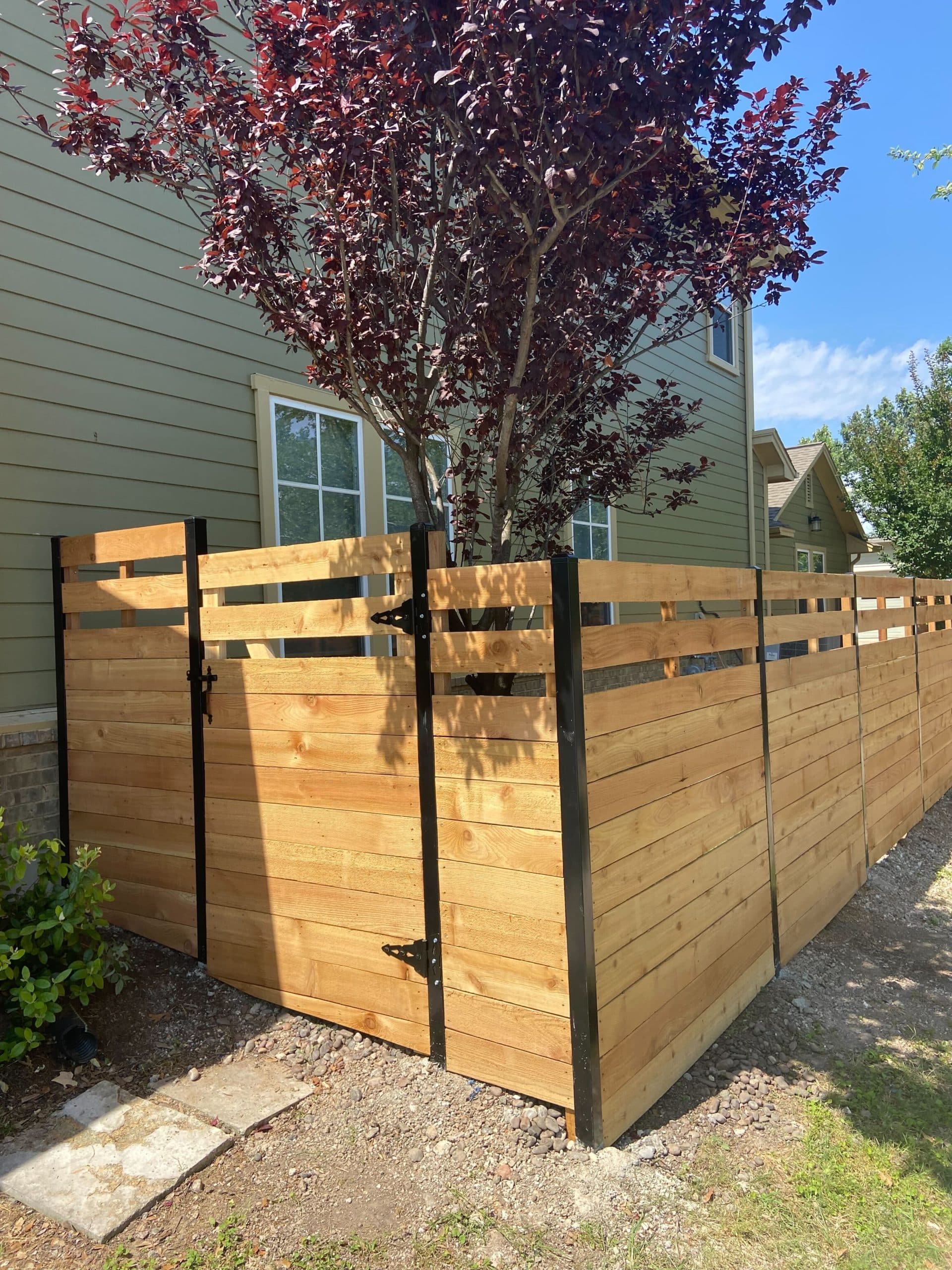All Categories
Featured

Choosing the appropriate fencing for both personal privacy and noise reduction is a crucial factor to consider for lots of property owners, specifically if you live in an active location or near high-traffic roads. The materials you choose can make a considerable distinction in exactly how well the fence offers its function. Let's explore several of the ideal secure fencing materials for enhancing privacy and blocking out sound.
- Wood Fence. Wood fencings are a traditional selection for personal privacy and noise reduction. The natural thickness of wood enables it to soak up sound efficiently, making it a solid option for dampening exterior noises. A solid timber fencing, particularly one with closely spaced slats or no gaps, supplies significant soundproofing. Wood also supplies a typical, rustic visual that mixes well with the majority of landscapes.

Finest for: Home owners seeking a natural, ageless appearance and efficient noise barrier. Maintenance: Timber fencings require normal maintenance to stop problems like splintering, warping, or rot. Routine staining or sealing is vital to safeguard the timber from the elements. Noise Reduction: A solid, no-gap wood fence can block a considerable amount of noise, particularly from neighboring website traffic or building and construction. 2. Vinyl Fencing. Vinyl fencings are a contemporary option to conventional wood and offer the advantage of reduced upkeep. Vinyl fences can be set up as strong panels that are fantastic for both privacy and sound reduction. While vinyl does not soak up sound as well as timber, it still provides an effective sound barrier, particularly when set up with tight-fitting panels that protect against gaps.
Finest for: Property owners seeking a cost effective, low-maintenance secure fencing option with a contemporary appearance. Upkeep: Vinyl fencings call for minimal maintenance. Just wash them sometimes to get rid of dust or spots, and they'll remain looking fresh for years. Sound Reduction: Strong vinyl fencings can reduce noise, though not as efficiently as wood. For far better noise-blocking, select thicker, high-density plastic panels. 3. Compound Fencing. Composite fences, made from a blend of wood fibers and plastic, use the finest of both globes: the all-natural appearance of wood integrated with the resilience and reduced upkeep of vinyl. These fencings are dense, which helps to take in sound while additionally offering a solid privacy obstacle. Composite fencings can likewise be built with tight panels to even more reduce sound.
Ideal for: Property owners who desire the look of wood with less maintenance and enhanced toughness. Maintenance: Compound fences are really low-maintenance and only call for periodic cleansing to remove debris. Noise Reduction: Compound fencings are fairly efficient at noise reduction due to their density. They do similarly to timber fences and are an excellent selection for those searching for both privacy and soundproofing. 4. Rock or Block Walls. Rock or block fences supply superior personal privacy and noise reduction. The solid, hefty building and construction of stone or block wall surfaces makes them extremely reliable at obstructing noise, especially when they are developed with no spaces.
Best for: Home owners who focus on safety, privacy, and sound reduction over visual appeals or expense. Maintenance: Rock or block wall surfaces are long lasting and need marginal maintenance. It's crucial to examine for any fractures or damage over time. Sound Decrease: Stone or block provides the very best sound decrease amongst all products. They are extremely reliable at obstructing out both low-frequency and high sound. 5. Steel Secure Fencing with Soundproofing. While metal fences, such as aluminum or steel, are typically not as reliable for sound reduction on their own, they can be boosted with soundproofing materials. Including acoustic panels or soundproofing foam can turn a steel fence right into a superb sound obstacle. These fencings provide a streamlined, modern-day appearance, and the included soundproofing aspects can give considerable noise decrease.
Best for: Home owners who favor a modern-day visual and agree to purchase soundproofing enhancements. Upkeep: Steel fences call for minimal upkeep however may need rust prevention in particular climates. Noise Decrease: When improved with soundproofing products, steel fences can be efficient at obstructing sound. Without these enhancements, nevertheless, metal fencings tend to be much less reliable at noise reduction compared to denser materials like timber or brick. 6. Greenery or Hedge Fencing. For those that choose an all-natural solution, thick hedges or bushes can serve as a noise-dampening fencing. While not a conventional fence material, thick plants can soak up audio and produce an all-natural barrier against sound. While they may not block noise as effectively as a solid wall surface, they can help in reducing ambient sound and add a layer of personal privacy.
Ideal for: Homeowners looking for a much more environment-friendly and aesthetically pleasing alternative. Upkeep: Greenery fencings need normal cutting and like maintain them healthy and thick. Noise Decrease: While not as efficient as solid fences, thick plants can help in reducing sound by absorbing audio, especially when grown densely. Conclusion. When selecting a fence for privacy and noise reduction, products like wood, plastic, composite, and stone are among the best options. Wood and composite give an all-natural, dense barrier, while plastic is low-maintenance and reliable for reducing noise. For the highest degree of privacy and noise brick, stone or decrease walls are one of the most efficient option. Additionally, metal fences can be enhanced with soundproofing materials for included noise-blocking benefits. Select the product that ideal fits your demands, budget, and visual preferences to make sure a quiet and useful outdoor space.
Latest Posts
Uncover the Premier Auto Repair Offers in Montclare, Chicago
Published May 28, 25
1 min read
Improve Your Residential Property with Expenses Door Solution
Published May 23, 25
1 min read
Discover Reduce Expenses on Car Maintenance with Montclare Auto Repair’s Special Deals
Published May 18, 25
1 min read
More
Latest Posts
Uncover the Premier Auto Repair Offers in Montclare, Chicago
Published May 28, 25
1 min read
Improve Your Residential Property with Expenses Door Solution
Published May 23, 25
1 min read
Discover Reduce Expenses on Car Maintenance with Montclare Auto Repair’s Special Deals
Published May 18, 25
1 min read